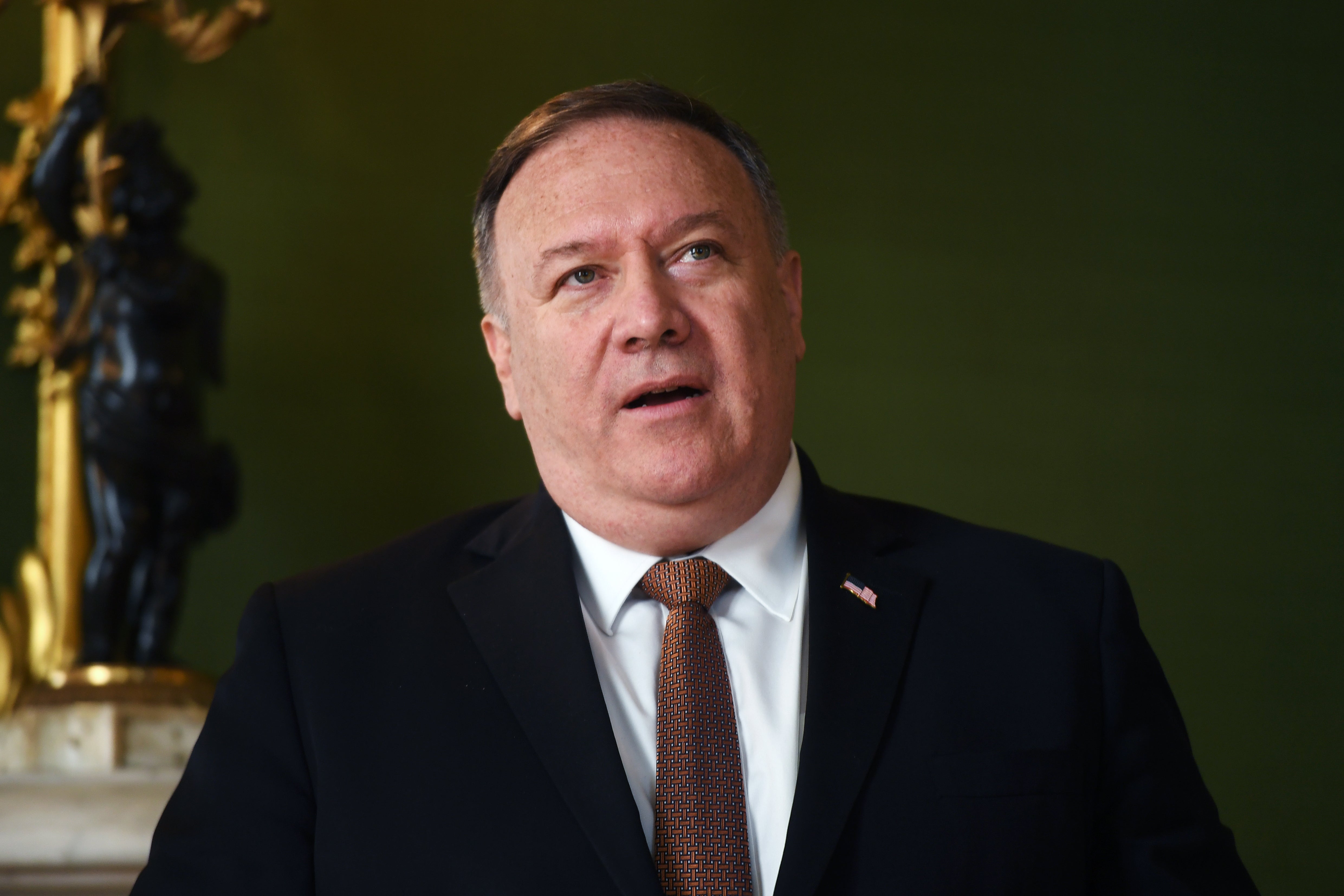Pompeo accuses UK of paying ‘blood money’ to Iran for detainee releases
The ex-US secretary of state said the funds would be used by Tehran to ‘terrorise’ Israel, the UK and the United States.

Your support helps us to tell the story
From reproductive rights to climate change to Big Tech, The Independent is on the ground when the story is developing. Whether it's investigating the financials of Elon Musk's pro-Trump PAC or producing our latest documentary, 'The A Word', which shines a light on the American women fighting for reproductive rights, we know how important it is to parse out the facts from the messaging.
At such a critical moment in US history, we need reporters on the ground. Your donation allows us to keep sending journalists to speak to both sides of the story.
The Independent is trusted by Americans across the entire political spectrum. And unlike many other quality news outlets, we choose not to lock Americans out of our reporting and analysis with paywalls. We believe quality journalism should be available to everyone, paid for by those who can afford it.
Your support makes all the difference.Downing Street has defended the payment of £400 million to Iran after the Government was accused of paying “blood money” to secure the release of Nazanin Zaghari-Ratcliffe.
Former US secretary of state Mike Pompeo said the UK was “rewarding hostage-takers” and that the funds would be used by the regime in Tehran to “terrorise” Israel, Britain and the United States.
However, Downing Street insisted the payment – to settle an outstanding debt dating back more than 40 years – was not “contingent” on the release of detainees by Iran.
The Prime Minister’s official spokesman said the UK had never accepted British nationals being used as “political leverage”, and that the money was “ring-fenced” for the purchase of humanitarian goods.
On Wednesday, Foreign Secretary Liz Truss announced that the UK was paying £393.8 million to Iran “in parallel” with the release of Ms Zaghari-Ratcliffe and her fellow dual-national, Anoosheh Ashoori.
The payment was to cover debt owed by a subsidiary of the Ministry of Defence – International Military Services (IMS) – after Britain cancelled an order of Chieftain tanks following the overthrow of the Shah in 1979.
However Mr Pompeo – who served under Donald Trump – said it amounted to “appeasement” of hostage-takers.
“The UK priced taking and holding its citizens hostage at 530 million dollars. We prevented paying blood money – not rewarding hostage-takers,” he tweeted.
“That cash will terrorize Israel, UK and US. Sadly, Iran, with Russia and China, is rolling the West. Appeasement feels good until it fails – it always does.”
The Prime Minister’s spokesman said the Government had always acknowledged that it had owed the money for the tanks which were never delivered.
“We have said we would settle the IMS debt in parallel. We have done that. It is not contingent on the release of any detainees. We have been clear about that from the start,” the spokesman said.
“We have resolved that debt as we always said we would. The UK has never accepted our nationals being used as political leverage for any purpose, including trying to secure the IMS debt repayment.”
Mr Pompeo’s comments come after it was disclosed earlier this month that the US state department was paying more than two million dollars (£1.5 million) a month to provide security for him and a former top aide in the face of “serious and credible” threats from Iran.
Earlier, Foreign Office Minister James Cleverly said the negotiations with the regime in Tehran had proved “incredibly difficult”, not least because of the “huge number” of sanctions imposed on Iran.
He said they had taken “every precaution” to ensure the money paid to settle the outstanding debt for an order of British tanks which was never delivered would be used purely for humanitarian purposes.
“We owed this debt, we accepted that debt. Obviously, the sanctions position made it incredibly difficult – you cannot just write a cheque,” he told Sky News.
“The details of how we have done it have to remain confidential, but it has taken a huge amount of work to come up with a method of ensuring that money is for humanitarian purposes and that it conforms to the sanctions regime.”